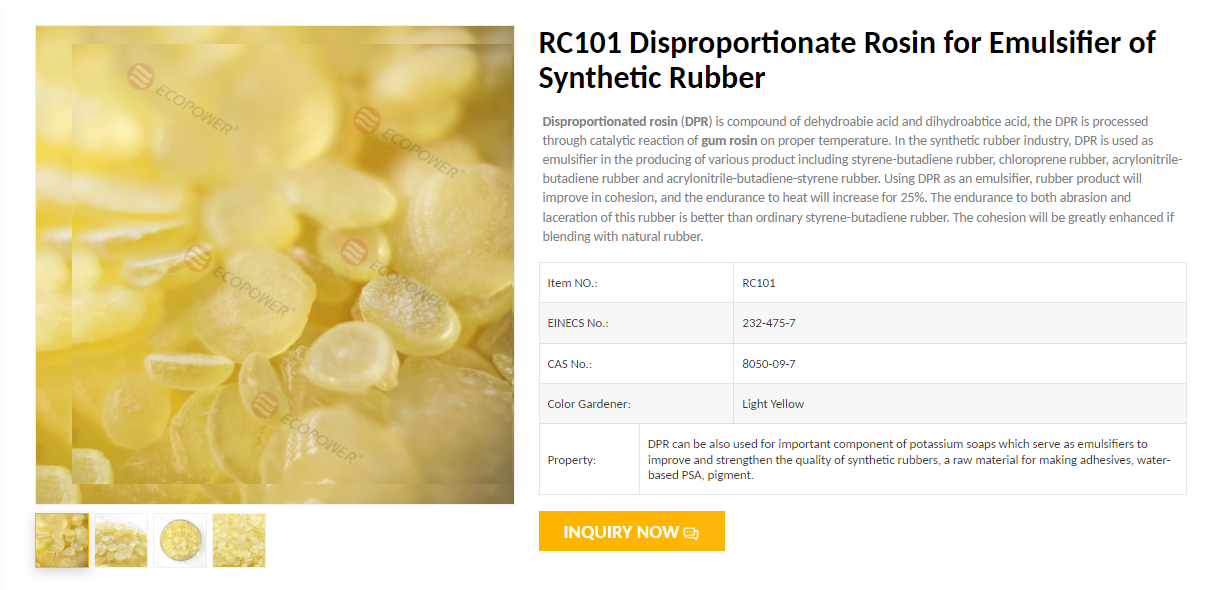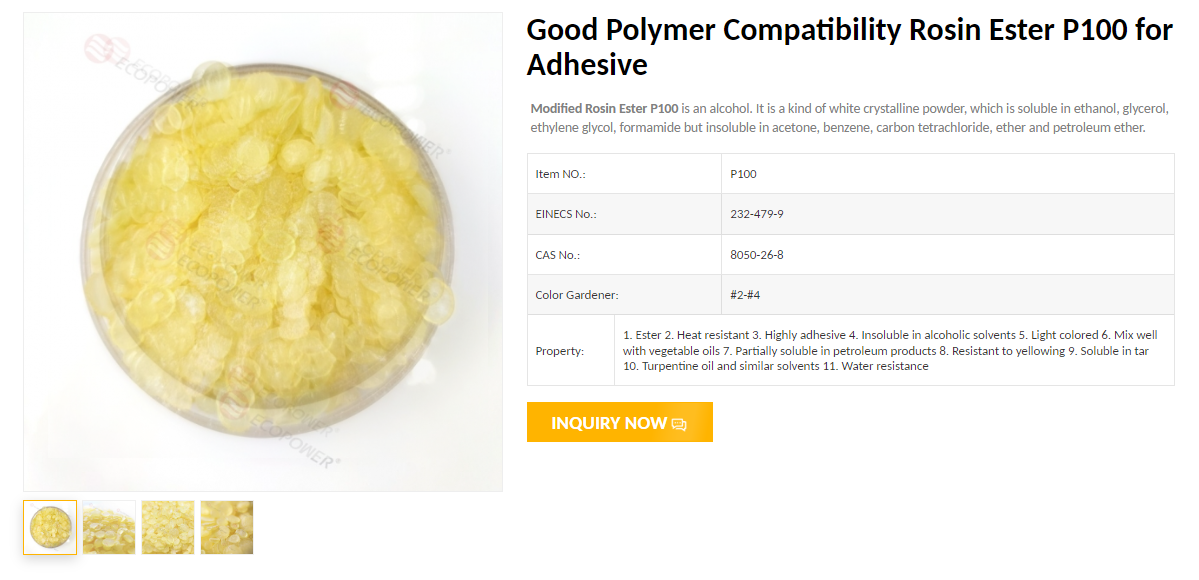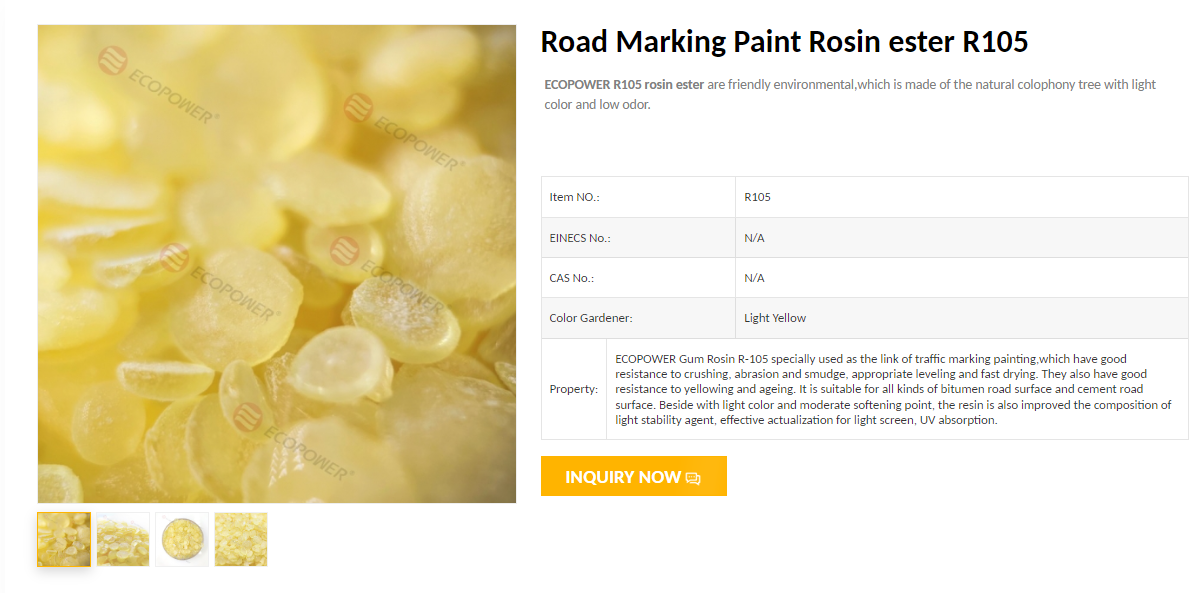 Whatsapp us
Whatsapp us
In the rubber industry, rosin is often used as a softener to soften the rubber, make it easy to knead, and make the filler easy to disperse, giving the rubber plasticity for later screw extrusion during processing. In addition, it can help disperse the pigment and make the surface of the product smooth. Rubber containing 2-6% rosin can increase its tear strength and elasticity. In the synthetic rubber industry, disproportionated rosin potassium soap is used as an emulsifier in the production of styrene-butadiene, chloroprene, nitrile-butadiene and acrylonitrile-butadiene-styrene rubber. Since the 1970s, the rosin used in synthetic rubber in various countries in the world accounts for about 20% of the world's total output of rosin. The use of disproportionated rosin as an emulsifier can enhance the adhesive force of the rubber, the heat resistance can be increased by 25%, and the abrasion resistance and tear resistance are better than ordinary styrene-butadiene rubber. When mixed with natural rubber, the bonding properties are greatly improved.

Whether it is rubber-based adhesives, synthetic resin-based adhesives or plant-based adhesives, rosin is usually used as the adhesive ingredient. Rosin-based materials are generally suitable for hot melt adhesives, pressure sensitive adhesives and rubber adhesives. The basic components of hot melt adhesives are paraffin, ethylene-vinyl acetate copolymer and rosin and its derivatives. The addition of rosin is mainly to increase the strength, softness and adhesive properties of the adhesive. Hot melt adhesives are used in bookbinding, rubber boot manufacturing, furniture manufacturing and packaging industries.

Since rosin is easily soluble in alcohol, gasoline, turpentine and other organic solvents, rosin is one of the basic raw materials of paint. In the manufacture of rosin-based drying oil, rosin is often converted into resinate, and then cooked with glycerin oil (such as tung oil), and volatile solvents are added to make various paints. By adding various pigments to the paint, it can be made into enamel.
Rosin also has important uses in road coatings. In order to display a reflective sign in high-traffic places such as highways, airports, docks, etc., a thermoplastic coating is often used, which is coated on the dividing line, side line, crosswalk line and seat belt of the road, so that the driver can travel from the farthest where the road signs are clearly identified. This coating consists of thermoplastic resins, plasticizers, pigments, fillers, reflective materials and water repellents.
The thermoplastic resin is mainly male rosin ester formed by the action of male rosin and polyol, and polymerized rosin and disproportionated rosin polyol ester can also be used. My country's paint and coating industry is one of the sectors that use the most rosin. The average consumption of rosin in paint production is 5-6%.
